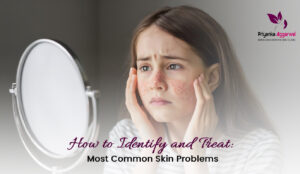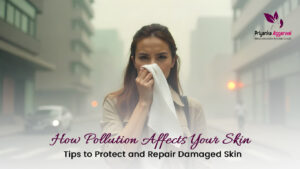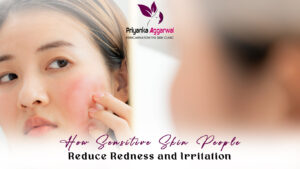Skin starts to droop as we get older, and that is one of the scariest things. The advancements in skin care have given us the hope that we can battle wrinkles, sagging skin, and dry complexions to no end. In this post, we will explore the science of anti-ageing products, and spotlight a few specific ingredients like retinol, hyaluronic acid, vitamin C, peptides, and sunscreens. The ability to understand what these ingredients do will then guide you on whether or not you are going in the right direction in terms of your skincare choices.
Here are the top 5 anti-ageing products and let’s learn the science behind them.
Retinol:
Regarding anti-ageing products, Retinol has plenty of research and evidence on its side, which is why it’s one of the most favored ingredients for preventing skin from ageing. This accelerates cell turnover, helping to slough away old dead skin cells more quickly for the fresh and young skin underneath. This action almost immediately enhances your skin’s quality and lessens the look of fine lines & wrinkles.
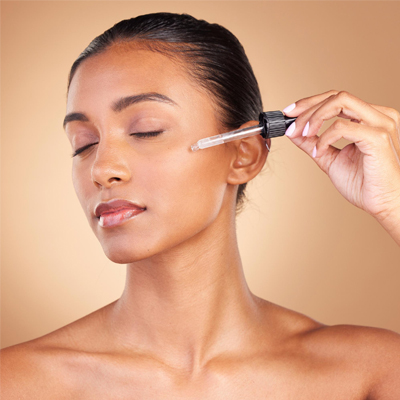
Retinol also promotes collagen production. Did you know that Collagen is the protein responsible for keeping your skin firm and structurally sound and holding it up in place? As we age, collagen declines, resulting in sagging skin and fine lines and wrinkles. Retinol boosts collagen production, so it helps keep your skin firm and elastic—hence its common use in anti-ageing products.
Moreover, retinol can be irritating, especially to those who have sensitive skin. Perhaps applying anti-ageing products and ensuring you incorporate them slowly into your routine is key. Start with the weakest strength and apply at night. Use sunscreen during the day to keep your skin protected from harmful rays.
Hyaluronic Acid:
You get hyaluronic acid in most anti-ageing products and it is one of the top dogs for good reason. Hyaluronic acid is not anti-aging but we know depleted hydration levels speed up the ageing process. Humectant: It can attract water to your skin from the air, working to keep it moist and stave off dryness, therefore ensuring that your face is plump and well-hydrated. Dehydrated skin looks flat, which is a big factor when you think about any anti-ageing regime as well.
This hydrating agent holds up to 1000 times its weight in water, stopping dehydrated skin in its tracks. When skin is hydrated, it appears both plumper and glowy (since dryness can create an ashy look on your face), which helps to reduce the appearance of fine lines and wrinkles. That’s why a lot of the good anti-ageing products are right at your fingertips in most anti-ageing serums and moisturizers.
Hyaluronic acid is suitable for all skin types, but it works wonders for people with dry skin or ageing concerns. Often combined with actives such as retinol hydrate and soothe redness.
Vitamin C:
Vitamin C is a key component in anti-ageing products. It can neutralize unstable molecules called free radicals, and prevent skin cell damage, which leads to the process of ageing. Since free radicals are constantly being created in our skin from pollution, the sun, and even stress — having an antioxidant like vitamin C is essential for anyone who has a skincare routine.

Vitamin C, besides being an antioxidant, also brightens the skin helps in the reduction of hyperpigmentation & produces collagen. It is known to be very efficient to fight the usual getting older symptoms, dullness uneven pores, and skin tone from nice lines. While the antioxidant properties are helping this minded youth formula repair your cells, vitamin C is actively improving collagen synthesis, lending your skin a tighter look and feel.
Vitamin C is unstable when exposed to light and air so you want to go for products in opaque packaging to ensure it will last. It also should be applied in the morning to shield your skin from environmental harm during daylight hours.
Peptides:
The ingredient that gives it its superpowers, though, is peptides. These are also present in many anti-ageing products. They are pigeonholed as the protein precursors of collagen and elastin: both necessary for holding our skin firmly in place, keeping a plump & youthful appearance. When we become older, the capabilities of making collagen and elastin in our body fall low leading to wrinkles and decreased skin elasticity.
Skincare manufacturers include peptides in anti-ageing products with the target of stimulating your pelt’s natural repair processes. Peptides trigger the skin to increase its production of collagen, so they can reduce the texture of the skin and dryness reduce firmness, and increase elasticity. They are also used for skin barrier repair which shows results in keeping the true essence of the skin alive and reduces ageing.
Peptides are well-tolerated by most skin types (all the more reason to use them every day), liable for just still an additional A.M./P.M. step but they can be packed with other materials—like together hyaluronic acid and otherwise the vitamins that vitamin C—for an integral anti-ageing regimen.
Sunscreen:
We could not discuss anti-ageing products without briefly mentioning sunscreen. While the other ingredients we have covered help to restore and refresh the skin, sunscreen is necessary for protecting it. Direct sunlight can induce premature skin ageing (wrinkles, hyperpigmentation) and lead to the appearance of different types of cancer as a result of the action of UV radiation.
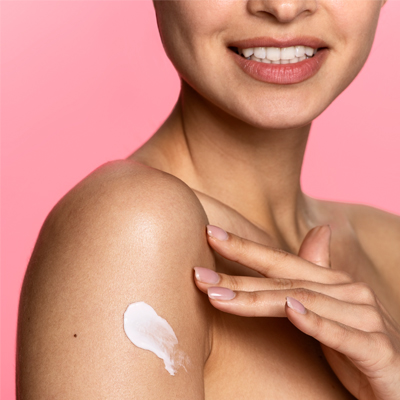
Wearing sunscreen provides a shield from both UVA and UVB rays (which are damaging to the skin), which is what prevents photoaging, otherwise known as premature ageing of the skin due to repeated sun exposure. Research indicates that daily wear of sunscreen can slow ageing by helping to block ultraviolet rays from reaching the skin at all, a critical key in any effective skincare regimen over yadda.
The one step you should always do during the day, no matter what type of weather you are under, is to apply sunscreen every morning; ensure that it is an anti-ageing product broad-spectrum sunscreen, and at minimum have an SPF 30. Regularly reapply, especially when in the sun. By taking advantage of this, and including your sunscreen with other anti-ageing products and topical remedies you can come up with a very potent regimen that not only stops but can indeed partially reverse the ageing process.
Conclusion:
Among the key ingredients, you might expect to find retinol, which boosts cell turnover; hyaluronic acid, which penetrates deep into the skin for heavy-duty hydration; vitamin C, an antioxidant that might protect your face from free radicals; peptides, which stimulate collagen production; and sunscreen to block UV rays and inflammation. However, it has to be consistent as these are longer-processed products that take time to yield results that are visible on the skin.
If you are unsure where to begin or wish to personalize your routine, always seek the help of a professional. With the most effective anti-ageing products, the best dermatologist in Kolkata at Reincarnation Skin Care Clinic, Dr. Priyanka Aggarwal treats a variety of conditions including fine lines and wrinkles. With her expertise in skincare, you can make sure that you get the best anti-ageing products for your skin so that no matter which way your skin ages, it will be gracefully and confidently.
Read more: Post-Treatment Care: How to Maintain your skin after treatment
FAQ
What are the most effective ingredients for anti-ageing products?
The most beneficial ingredients used are retinol which helps turn over cells, hyaluronic acid, vitamin C(antioxidant), peptides which help to make collagen, and SPF needed ingredient for skin protection.
When should I start using anti-ageing products?
If you are in your mid-to-late 20s, collagen production has started to decrease, and you have started to notice fine lines forming, now is a good time to include some anti-ageing skincare.
Are there any side effects to using anti-ageing products?
Retinol and other anti-ageing topical products may irritate or dry out skin, especially on sensitive areas like the face. You introduce them slowly & see a derm if needed.


